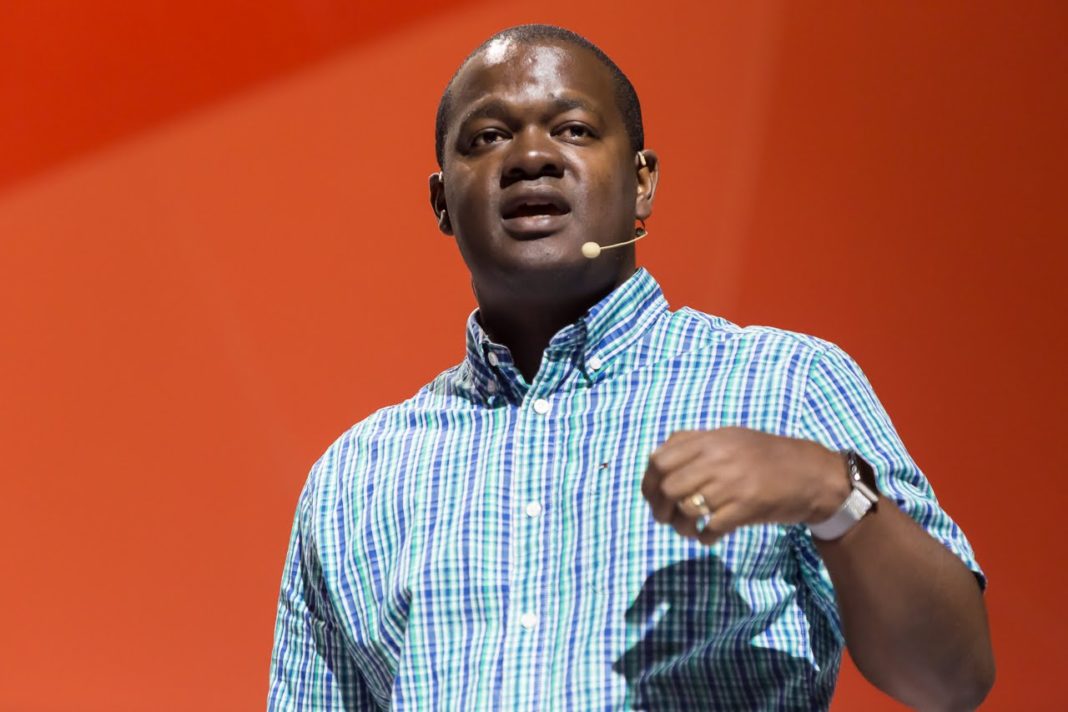Professor Noble Banadda, Chair of the Department of Agricultural and BioSystems Engineering at Makerere University in Uganda and a former RUFORUM Principal Investigator has been awarded the Pius XI Medal for the year 2018. The award, given by the Pontifical Academy of Sciences based at the Vatican, is in recognition of his outstanding scientific research.
He was selected by unanimous decision of the Academy Council from among many candidates proposed. The Pius XI Medal was established in 1961 by Pope John XXIII to recognize outstanding scientific merit in the field of the natural sciences achieved by a young scientist under the age of 45. It is awarded by the Pontifical Academy of Sciences every two years and a few of the winners have gone on to become members of the Academy. Twenty-eight winners have been awarded the medal since its launch in 1961, but Prof Banadda will be the first African to receive it.
The medal will be presented to Prof. Banadda during the next Plenary Session of the Academy to take place from 12 to 14 November 2018 at the Vatican under the theme, “Transformative roles of science in society: from emerging basic science toward solutions for people’s wellbeing”. The actual award will likely take place during the Solemn Audience be granted by Pope Francis to participants of the Session, during which Prof. Banadda will make a presentation on his most important scientific research.
About Prof Banadda
Prof. Noble Banadda holds a PhD in Chemical Engineering and MSc in Processing Engineering from the Katholieke Universiteit Leuven (Belgium) and a BSc Food Science and Technology from Sokoine University of Agriculture (Tanzania). In 2007, he won the Cochran Fellowship to undertake postdoctoral studies in the Department of Chemical Engineering at Massachusetts Institute of Technology (USA).
A trailblazer, in August 2012 he was appointed a full professor at the age of 37 years. This was the first ever in the Department of Agricultural and BioSystems Engineering at Makerere University and the only one to-date. He was the youngest fellow to join the Uganda National Academy of Sciences in 2013 and the only person to qualify to be in both the young and senior academy in Uganda. In 2015, he was among only seven Africans that qualified as fellows of the prestigious Next Einstein Fellowship.
Prof. Banadda’s research interests are broadly in mathematical modeling, biological systems and renewable energy. In academia, he has served as a visiting professor in universities in Africa, Europe and USA and supervised several master’s and PhD theses. He has authored over 80 peer reviewed scientific papers in international journals and with 1,395 citations on Google Scholar, he is ranked 64th globally and 5th in Africa in waste management research.
Prof. Banadda first won a research grant from the Regional Universities Forum for Capacity Building in Agriculture (RUFORUM) in 2011 through it Competitive Graduate Research Scheme. His research was on, “Investigating contamination risks associated with wrapping indigenous foods in plastic bags during thermal processing.” The study that sought to address public health concerns found that both black and green polyethylene bags, commonly used to wrap food in Uganda, contained heavy metals in varying concentrations which migrated into food during cooking at different temperatures and their migration increased with increase in temperature and holding time. This therefore exposes people to ingesting heavy metals, though in small quantities, but which may accumulate over a long period of time and cause health problems.
In 2015, he won a second grant to carry out research on “Pyrolysis of agricultural waste for bioethanol production”. The purpose of this research was to produce ethanol from low cost agricultural biomass such as banana peels, straws, plant stalks, stovers and molasses in order to make it competitive as a direct fuel or blended into petrol as an additive. Success of this project will, among other benefits, enhance incomes, moderate fuel prices, attract youth into agriculture, and create jobs.





